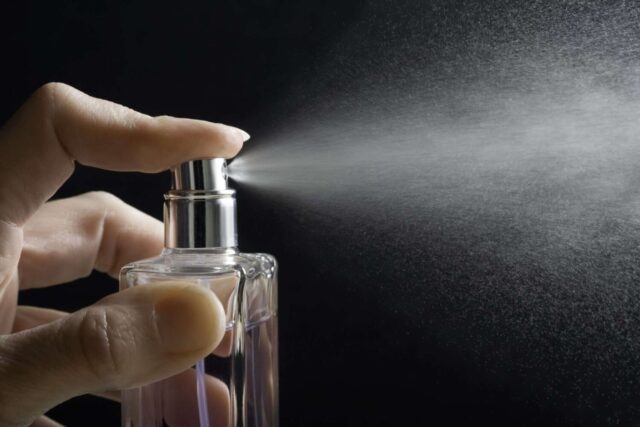
Perfumes have been an integral part of human culture for centuries, used to enhance personal scent, boost confidence, and leave a lasting impression. However, as your understanding of allergies and sensitivities has grown, so has your awareness of the potential adverse effects of strong fragrances on individuals with scent allergies and sensitivities.
For those who experience discomfort or health issues when exposed to certain scents, choosing the right perfume becomes a matter of utmost importance. This article aims to provide essential tips for perfume selection to accommodate individuals with scent allergies and sensitivities, ensuring a pleasant and safe experience for all.
Understanding Scent Allergies and Sensitivities

An unfavorable reaction to the chemicals and molecules that are present in perfumes and other fragranced products is what is known as a scent allergy or scent sensitivity. These reactions can range from relatively modest manifestations like headaches, nausea, and sneezing to significantly more severe ones like rashes on the skin, difficulty breathing, and even migraines.
It is essential to keep in mind that some people might not have an allergy to a specific odor, but they might have a sensitivity to strong smells, which would cause them to feel uncomfortable and irritated.
Tips for Perfume Selection
People who buy men’s and women’s perfume online have the advantage of being able to conduct research about the perfume they want, the ingredients used to make it, and of course, whether or not it will irritate their skin. Here are a few helpful tips to consider while selecting the perfect perfume:
1. Opt for Hypoallergenic Perfumes
Keep an eye out for fragrances that are labeled “hypoallergenic” or “fragrance-free.” These formulations are often created with the goal of reducing the likelihood that they would aggravate existing sensitivities or allergies.
2. Patch Testing

Perform a patch test on a small area of your skin before totally committing to a new fragrance. Wait between 24 and 48 hours after applying a small amount of the perfume to a discrete part of your skin, such as the inside of your wrist, in order to notice any adverse responses that may occur.
3. Natural and Organic Options
Take into consideration natural and organic perfumes that are made with essential oils and extracts from various plants. These options typically have a lower number of synthetic chemicals, which are a common source of allergy symptoms.
4. Avoid Overpowering Scents
Choose perfumes with aromas that are delicate, light, and refreshing. People who are easily irritated are more prone to experience discomfort when exposed to odors that are powerful and overwhelming.
5. Unscented Lotions
Try using unscented lotions as a base on your skin before applying perfume, rather than applying perfume directly to your skin. This may assist in diluting the perfume and lessening the fragrance’s intensity.
6. Limited Ingredient Lists
Read the list of components that go into making perfumes and choose the ones that have the fewest amount of ingredients. This decreases the likelihood of coming into contact with particular allergies.
7. Consult Allergists

If you already know you have allergies, you might want to think about seeing an allergist so they can point out specific fragrance components that you should stay away from.
8. Ask for Samples
Request samples from the merchants you plan to buy from before committing to buying a full-sized bottle. Before making a purchase, you will have the opportunity to sample the fragrance and evaluate its effects.
9. Spray Away from Skin
When applying perfume, hold the bottle a few inches away from your body and spray it from there so that the mist has room to settle. If you can help it, try to avoid spraying directly onto your skin. This will help decrease the amount of direct contact you have with possibly allergic substances.
10. Frequent Reevaluation
Over the course of time, sensitivities might change. Things that were easily tolerated in the past may now give rise to problems. Always be ready to review the perfumes in your collection on a regular basis.
Helpful Tips for Utilizing the Right Fragrance

Once you have selected the ideal perfume for you, what you need to do is how you will utilize it. Here are a few tips that will assist you in getting the most out of your scent.
Think About the Time of Year and the Event
When looking at how to select a fragrance that complements your personality, it is important to take into account the time of year and the event. It is absolutely necessary to select a fragrance that is appropriate for both the season of the year and the particular occasion that you will be attending.
Using a Combination of Fragrances to Create a Unique Odor
By layering several perfumes and then combining them on your skin or on blotters, you can develop a signature aroma that is completely particular to you.
Properly storing perfume to ensure its longest possible lifespan
It is essential to keep your perfume in a location that is cool, dark, and out of the way of both direct sunlight and extremely high or low temperatures. A refrigerator, a wine cellar, or a locked closet in a well-ventilated space such as a bathroom are some of the alternatives that are great for storing alcohol.
The effects of sunshine on your skin, which can contribute to premature aging and degradation, are comparable to the impact that daylight and direct sun can have on scents. Exposing perfumes to daylight and direct sun can destroy their natural components and hasten the oxidation process. Fragrances that have a significant proportion of natural ingredients are very delicate and susceptible to deterioration when exposed to sunlight.
Empowering Your Fragrance Journey: Navigating Scent Allergies and Sensitivities with Confidence
People sensitive to smells or have scent allergies should not let that stop them from enjoying the pleasures of perfume. Individuals can choose perfumes that improve their personal scent without provoking pain or unfavorable responses if they follow these basic suggestions for perfume selection.
The most important thing is to have a good grasp of one’s sensitivities, pay attention to the lists of ingredients, and use hypoallergenic or natural alternatives whenever possible. Individuals can boldly explore the world of perfumes and select scents that bring joy and harmony into their life if they keep these things in mind.









